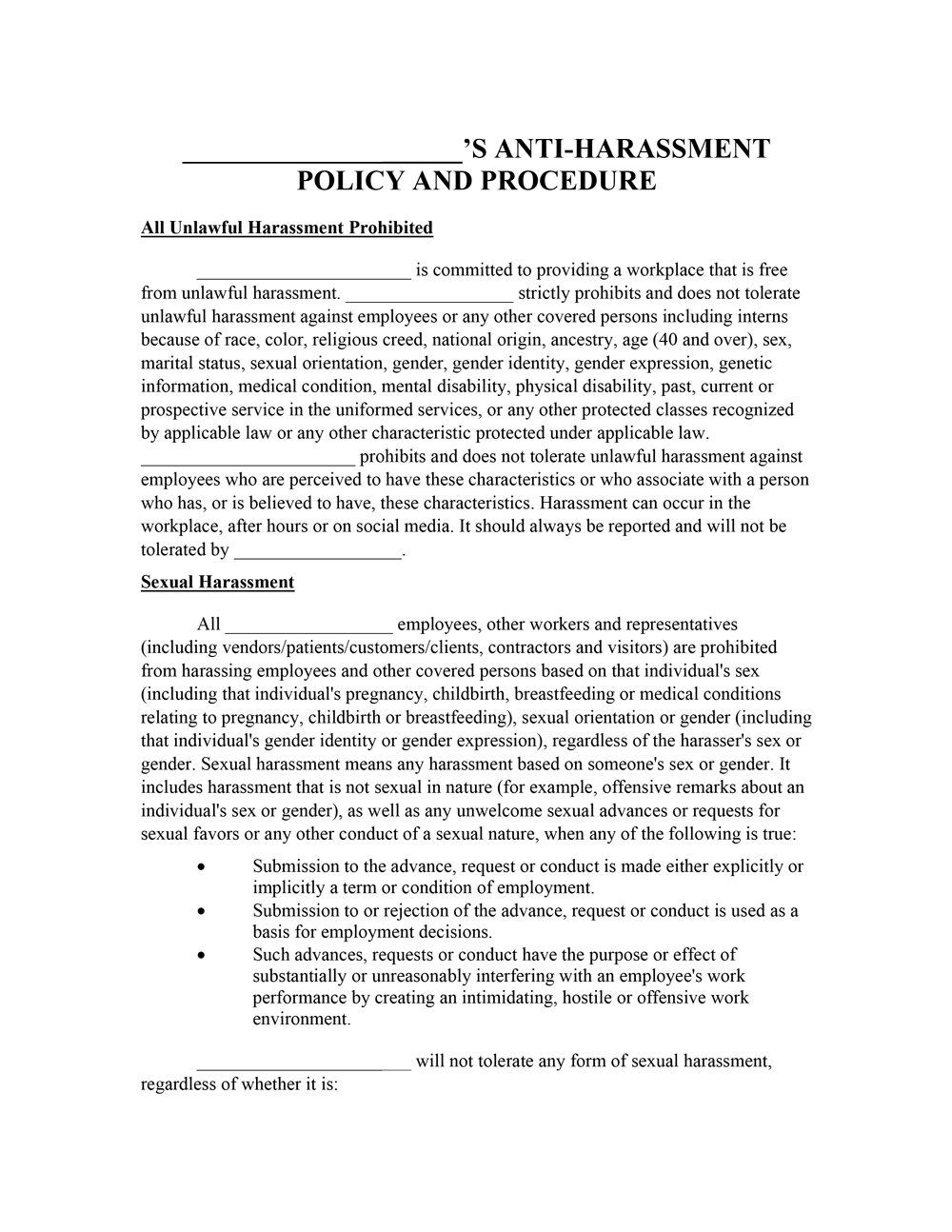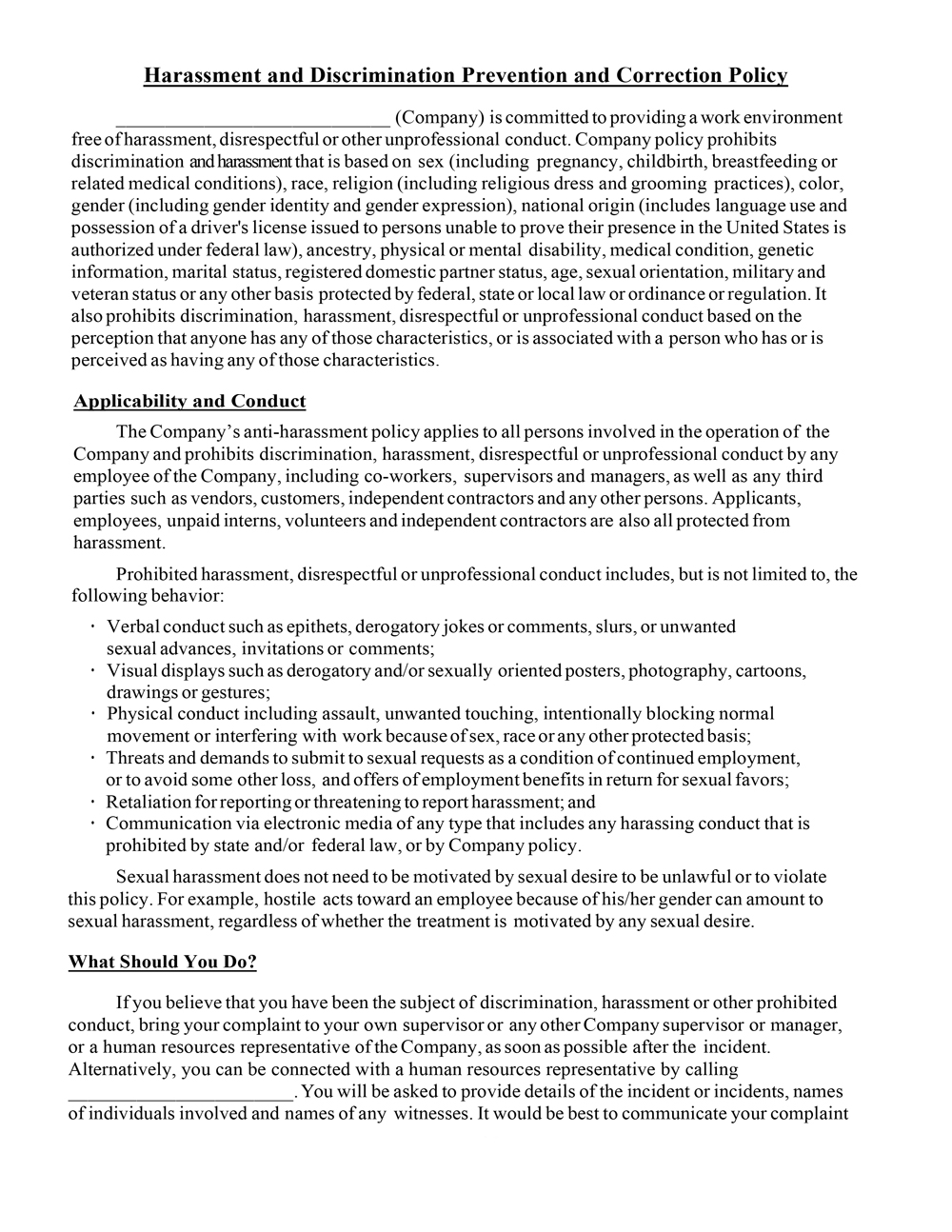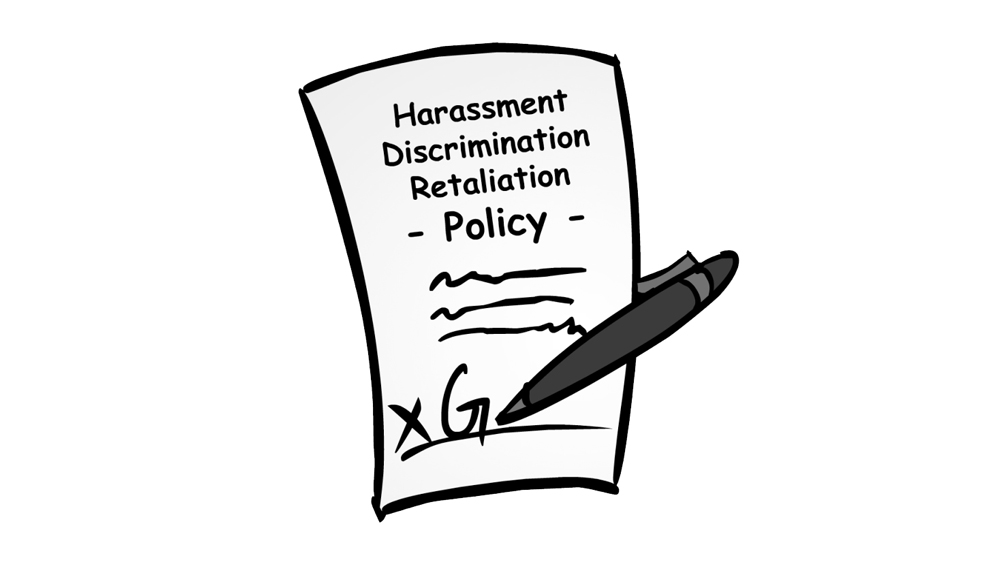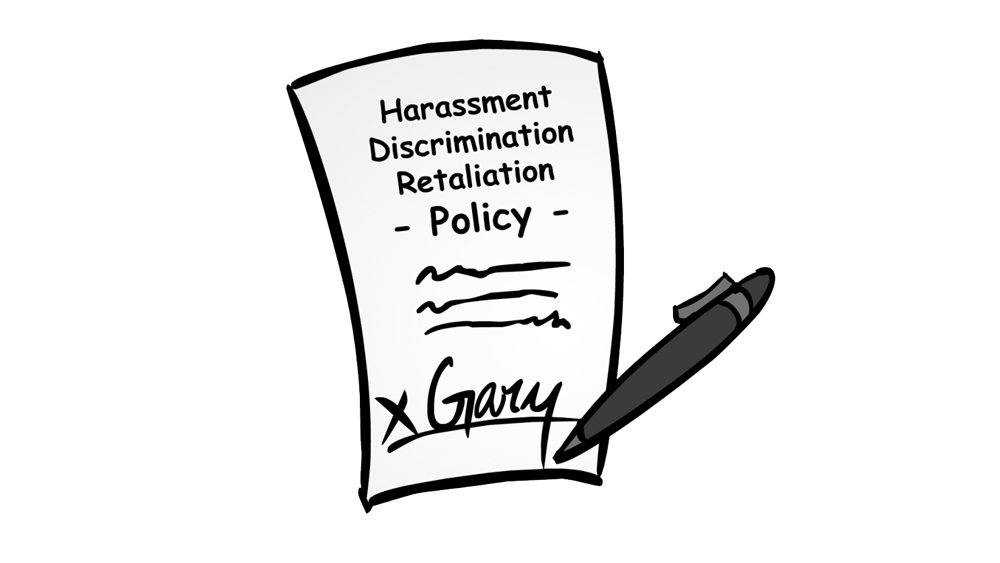Legal Matters – Don’t Get Sued!
From time to time I get asked, “What is the single most effective thing that a dentist can do to reduce legal liability?” When it relates to employment discrimination, harassment or retaliation, my answer is short, and it’s relatively simple.
Don’t get sued.
The monetary exposure from a lawsuit related to employment practices can be huge. Not only will you pay a large amount of money for your own lawyer to defend you, and pay a large amount of money for your accuser’s attorney’s fees if you lose, but large judgments tend to make large headlines, publicizing allegations that may be devastating to your practice.
Making matters worse, a small practice is typically not going to be insured for something like this. In fact, your comprehensive general liability policy expressly excludes employment practices claims. For that protection, you need an employment practices liability insurance (EPLI) policy that, according to our broker, will cost $4,000–$5,000 per year for a dental office in California, with a $5,000–$10,000 deductible. Costs tend to be lower outside California.
Of course, that will provide some protection if a suit arises; but what can you do to avoid a suit altogether?
1) Implement a Discrimination, Harassment and Retaliation Prevention Policy
The first thing you should do is create a harassment, discrimination and retaliation prevention policy for your practice, and have it signed by each employee and placed in their respective personnel files. For those bristling at the notion, remember: This is not just for your employees; it’s also for the attorneys that will sue you and the jury members that will decide your case. If the time comes, you’ll want them to understand your commitment against harassment, discrimination and retaliation. And if you live in California and are still on the fence, your decision just got a lot easier. For better or worse, California recently passed a law that, as of April 1, 2016, mandates providing employees with such a written policy if you have five or more employees. (Note that, in addition to your new obligations under this California regulation, you must still comply with your existing obligation to distribute a copy of Form DFEH-185, the California regulation pamphlet on sexual harassment, to all employees. A copy of this pamphlet is available on the Department of Fair Employment and Housing website at dfeh.ca.gov/res/docs/Publications/Brochures/2015/DFEH-185.pdf.)
The new California regulations provide a template for developing a written discrimination, harassment and retaliation prevention policy of your own, regardless of location or state of residence. Although I’m discussing California law, such a policy is highly recommended no matter where you are practicing. According to the law, the policy must:
- List all current characteristics protected under California law.
- Specify that legal protections apply to unlawful conduct by supervisors, coworkers and third parties.
- Instruct supervisors to report complaints of misconduct to designated personnel.
- Outline procedures for your employees to report complaints to someone other than a direct supervisor, and mechanisms to ensure timely investigations and responses for all complaints.
- Provide for confidentiality throughout the investigation process to the extent possible.
- Indicate that remedial measures will be taken following an investigation, if appropriate.
- Specify that retaliation for making a complaint or participating in an investigation is prohibited.
- Be translated into other languages if the spoken language of at least 10 percent of the workforce is a language other than English.
- Be given to and signed by all employees.
In keeping with my commitment to provide you with something practical in each installment, you will find attached to this article a preview of antidiscrimination policies that I drafted, including a generic one for those practicing outside California. However, states’ laws are too varied to address in a single article, and the policies I’ve included may not fully cover your legal liability. As always, nothing I relate to you should be construed as legal advice or the creation of an attorney-client relationship. As such, you should not use either of these policies without approval by your own lawyer, who will be aware of your state’s particular requirements.
2) Provide Mandatory Training
Follow up on your written policy with some actual training. Almost any employment or general-practice law firm will have training courses available, and any lawyer you work with who is interested in keeping your business will probably provide that training for free. In California, training is mandatory only if you have 50 or more employees, so while that requirement probably does not apply to most dental offices, it is still a wise course of action.
3) Disallow All Discussion About the Personal Characteristics of Your Employees
You cannot discriminate, harass or retaliate against any employee based on any “protected category” — race, gender, disability, national origin, color and so forth (for California, see the list of protected categories in the example policy). In the broadest manner possible, this means that, under the law, you cannot take any job action, like refusal to hire, refusal to promote, or termination based on any of the protected categories.
However — and pay attention now, or pay a lawyer later — from a simple, practical standpoint, this means no joking, no commenting, no discussing of any personal characteristics of your employees; and insisting your employees avoid the same. After all, the protected categories are made up of nothing but the personal characteristics of employees.
Top Takeaways
To summarize, here are my top recommendations to employers for keeping plaintiff lawyers’ hands off your hard-earned money:
- Have a written policy against discrimination, harassment and retaliation. Have it signed by each employee and put it in their personnel file.
- Ask a friendly lawyer for some free training on this topic for your staff.
- Understand that you cannot discriminate, harass or retaliate against any employee based on any “protected category.”
- Understand that #3 really means no joking about, commenting on, or discussing any personal characteristics of any employee, and prohibiting employees from doing the same.
- Check with your insurance broker about EPLI insurance.
- Be consistent and fair. Ask yourself how a jury would view your actions with your employees. You want the answer always to be, “as the nice, reasonable employer.”
- Along those same lines, act and speak in a manner that you would approve of seeing replayed on video in front of a jury. Remember, almost everyone has a video camera in their pocket.
- Hide any natural inclination toward favoritism you might harbor. Favoring one employee often equals discrimination from the perspective of another employee.
- Hire very cautiously, and get legal advice prior to terminating bad employees.
- Always set the example from the top!
Good luck out there! Email me if you have questions or comments.














